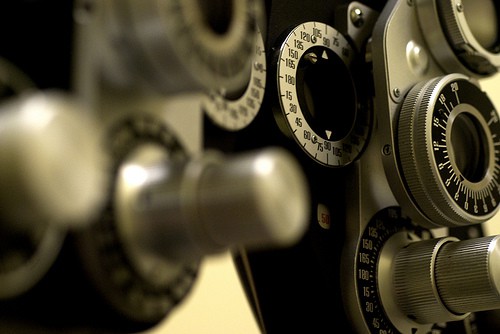
If you pick a fight with time, time will always win. When it comes to your marketing and business strategy, time is not a good excuse for failure, but it is a popular scapegoat.
I often hear people say they just don’t have enough time. I want to inspire you to question how you are using your time, and how you could be doing it better.
You can scale this however you like – from an individual to the largest corporations – time is a very precious business resource. I want you to take this personally, so I’m scaling this down to just you. That’s because you are responsible to yourself, first. It’s easy to scale this up and see how it can affect any company of any size.
If you are wasting time doing the wrong things, you can stop complaining right now, because you are getting exactly what you asked for. You must defend your time, and treat it like the valuable asset it truly represents to your business.
Why Do Competitors Always Have More Time?
Lack of time is one of the most common excuses I hear from people about why their marketing is in shambles. It is an especially popular excuse that people will use for neglecting their online market. They will say “I don’t have time to understand and use social media” or “I don’t have time to write a blog.”
Others will sit and gaze into Twitter or Facebook for hours on end while deluding themselves that they are actually being productive. Worse yet, some will spend countless hours trying to get more people to click on their website links, without a productive marketing plan that addresses who is clicking or why they would want to.
People who are using the excuse of time will seldom like to accept that although they “don’t have the time”, their competition does have the time, and they are using it to win market share. Let me tell you, it’s not about the amount of available time – it’s how they prioritize the resource.
Time and Money Are Friends on Facebook
It’s tragic but expected that I hear the excuse of time-shortage from the same people who say they don’t have enough money. That’s more than just coincidence. Using time poorly will usually have a pretty devastating affect on finances, while using money badly creates a huge drain on time.
Just imagine how much more you could afford to delegate to others if you just started using your time better. Then you could surely get a lot more done. Yes, indeed, time and money are deeply connected.
The challenges of time and money cause an ugly and wasteful dilemma, and until priorities are sorted out, the cycle of waste will continue. Here’s the kicker though – you have exactly the same amount of time as everybody else.
Don’t Let Yourself Off the Hook!
I’m not going to criticize others about their poor use of time without accepting my own guilt. I shudder to look at how many useful or interesting things I see on the Internet, but only make minimal use of. I have a huge stockpile of links to articles I mean to finish reading – but I’ll have to get back to them after I follow up on some email. It all gets pretty messy without a solid routine – and a whole lot of discipline.
Discipline is especially important once you click open a web browser. There is always something shiny, blinky, and time-robbing just a click away. Controlling those urges to try and see and do everything is a big step toward productivity. You simply have to shut some of it off, and if you miss a few things, it is likely for the best. You cannot do and see it all, and you should stop trying. Focused and highly disciplined use of your time at a that computer can make a huge difference in the outcome of your goals.
I don’t have it perfect, and neither do you. What I can claim is that I’m trying, and I hope you are trying, too.
Stop Being Defensive and Delusional
People are often reluctant to accept that when they use the “not enough time” excuse it is largely because they are using their time poorly. Many people are quite defensive about their inefficient use of time. After all, who likes to accept the reality that they are messing things up, and it’s all their own fault? Denial is a wicked thing, so it’s best to just accept it – you can do a better job of time management.
If you don’t have time to do things you know you should be doing, it is time to take a closer look at what you are doing that wastes your time. Since we each have exactly the same number of hours in a day, days in a week, and weeks in a year, time is not the problem. Priorities … now there’s the real challenge!
How Was Your 168 Hours?
It’s another Friday, and I’m gazing back through my week at what I have done – and also what I have not done. This week was not any longer than last week, nor shorter than next week. As expected, 168 hours have passed since this time last Friday, and I have 168 hours until this time next Friday.
I didn’t complete my recent objective of finding the job of my dreams this week. I’m willing to accept that it is largely my own fault. I made a lot of progress, but I took my eyes off the prize at times. I can make plenty of excuses, but I know that each excuse really comes down to priorities.
So now I wonder, how was your week, and what have you done to prioritize the next one even better? If you have any ideas for the rest of us, please share your comments. If you have a helpful tip, or a link to a helpful tip, please share your comments with the rest of us guilty time-wasters.
I’ve been thinking about this topic a lot lately, and I want to share a link that helped push me to share my thoughts with you. It is an article by my crusty, foul-mouthed, and respected peer, Erika Napoletano titled “The Part Where I Kick Your Ass“. Maybe you need your ass kicked, too. 😉
The next time you catch yourself in a loss for time, consider how you are using it. Are you making a list of priorities? Are you following a defined plan? Are you doing what it takes to use your time efficiently, or are you just making flimsy excuses like most people?
You may think I should give you a bunch of resources to free up your time. There are many good ideas in my blog archive, but most importantly, you must first recognize that there is a flaw before you can fix it.
Photo Credit:
it’s being time by Gisela Giardino via Flickr
Podcast: Play in new window | Download








